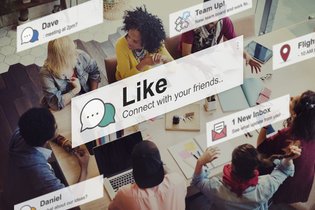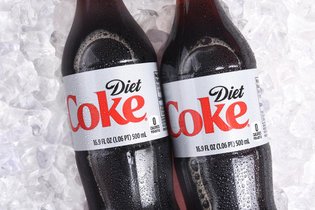8 Surprising, Everyday Things That May Be Bad for You
1.Receiving doggie kisses
Health risks can sometimes turn up in the most unexpected places. From getting licked by your dog to checking social media, researchers are uncovering hidden hazards that may be lurking in our daily lives that may possibly cause people harm or be unsafe.
Here are nine things you might do or experience while going about your day that could affect your health in surprising ways.
2.Going gluten-free
For some individuals, a gluten-free diet is not a choice, but a necessity: People with celiac disease, a rare condition in which eating gluten triggers an immune response that damages the small intestine, must avoid gluten. People with a diagnosed wheat allergy should cut back on gluten by avoiding wheat.
But as gluten-free diets have gained popularity, many people believe that avoiding gluten is healthier for them. Some say that they feel better and lose weight after cutting back on gluten or cutting out foods containing the protein, such as most breads, cereals, pastas, desserts and many processed foods.
However, nutrition experts say these health benefits could result from the foods people may be eating in place of those with gluten, such as more fruits and vegetables, and fewer sweets and junk food, as opposed to the benefits stemming directly from avoiding gluten. Nutrition experts also say that gluten-free products tend to cost more, and some gluten-free packaged foods may be higher in fats and sugar than products with gluten.
What's more, cutting out gluten could be risky for some people. For example, eliminating this protein from children's diets, when they don't have celiac disease or a wheat allergy, could lead to certain nutritional deficiencies, experts say.
3.Getting too much sleep
Many Americans get too little sleep. But sleeping too much can also have its pitfalls.
In a study that was presented at the American Heart Association's medical meeting this year, researchers found that getting too much sleep was linked to poorer heart health in older women.
Researchers found that older women who slept more than 9 hours a night had an estimated 13 percent risk of developing heart disease in the next 10 years, compared with an estimated risk of 12 percent in women who slept for 7.5 to 8 hours a night.
Other research has also shown that too much sleep can affect the risk of heart disease. But previous studies have asked people to remember how much they typically slept, whereas the new study used a more objective measurement of actual sleep, which may provide a more accurate estimate.
The researchers noted that the study had limitations. For example, it did not factor in whether these women took sleeping pills or had a sleep disorder, which could have impacted the results. The findings have not yet been published in a peer-reviewed journal.
4.Taking vitamins
People may take a multivitamin to cover nutritional gaps in their diet or to stay healthy. But researchers have shown that these popular supplements may not protect against chronic disease, and could be a waste of money.
Three studies done in 2013 found no evidence that taking a daily multivitamin prevents or slows the risk of developing chronic diseases, such as cancer and heart disease, or delays the progression of cognitive decline.
Results from earlier studies have also shown no benefits from taking antioxidants or B vitamins and even suggested some possible harm. Despite these findings, supplement sales in the U.S. remain strong.
In 2017, the U.S. Food and Drug Administration outlined another potential harm from taking supplements. They issued a warning to consumers about the risks of high doses of biotin, a B-complex vitamin.
High levels of biotin in the blood can skew the results of some lab tests, including tests that measure hormone levels and tests that detect heart attacks, the FDA says. These faulty test results have been linked to one death, the FDA says.
It's not clear how much biotin may interfere with lab results, but researchers are investigating the amount. The Institute of Medicine recommends 30 micrograms of biotin daily, whereas some supplements can contain more than 650 times the recommended amount.
5.Sitting all day
A desk job keeps your behind plastered to a seat for hours, which studies have shown can be hazardous to your health.
Long periods of sitting have already been linked with diabetes and heart disease. And a 2015 study identified yet another risk: Women who sat for more than 6 hours a day had a higher risk of developing breast cancer, ovarian cancer and multiple myeloma (a form of blood cancer), compared to women who sat less than 3 hours a day.
Similar results were not seen in men, except for those who were obese. Heavier men who spent more time sitting also had an increased cancer risk.
A second study investigated whether sitting was associated with other unhealthy behaviors. This analysis showed that people who spend most of the day sitting and sleeping too much may be as likely to die early as people who smoke or drink too much.
In a third study, researchers found that exercising may be one way to reverse some of sitting's negative effects. Working out for at least an hour a day could reduce or eliminate some health risks from long-term sitting, the researchers said.
6.Using a Smartphone
Smartphones seem indispensable, but the more people use them, the more health concerns pop up.
Take sleep problems, for instance. Adults who spent more time on their smartphones before bedtime took longer to fall asleep and didn't sleep as well or as much, compared with people who used their phones less before hitting the sack, a 2016 study revealed.
One reason could be that exposure to the screen's blue light may suppress the brain's production of the hormone melatonin, making it harder to nod off.
Smartphones may affect the brain in other ways: A small study found chemical imbalances in the brains of teens who were addicted to using their smartphones. Brain scans showed the teens produced too much of the neurotransmitter gamma-aminobutyric acid (GABA), in an area of the brain that controls emotions.
Frequent phone use may not only throw off brain chemistry, it may also cause short-term vision loss. A case report found that checking your phone at night while lying in bed in a dark room could lead to a loss of sight in one eye for several minutes.
7.Logging onto social media
Although social media is designed to help people feel more connected, all that posting, sharing and liking could make some young people feel more alone, a 2017 study suggests.
Young adults who spent more than 2 hours a day on popular social media sites, including Facebook, Instagram and Twitter, were about twice as likely to feel socially isolated as their peers who spent less than 30 minutes daily on these sites.
Social isolation means feeling like you don't belong and lack the skills to engage with others and form fulfilling relationships.
The researchers say it's not clear whether the reason young people turn to social media for connection is because they already feel isolated, or whether they feel more isolated after increasing their media use.
Some possible explanations for the findings are that social media could be limiting face-to-face interactions, and may be giving young people a false impression that other people their age are leading happier lives than they are, the researchers said.
8.Drinking diet soda
Two studies suggest that drinking diet soda may not be so good for your brain.
In one study, researchers found that middle-aged and older adults who consumed diet soda every day were three times more likely to have a stroke or develop dementia over a 10-year period, compared with those who did not drink any diet soda.
Although the exact reasons are unclear, previous studies have linked the consumption of diet soda with obesity and diabetes. Both of these health problems are tied to poor blood circulation, which can affect a person's risk for stroke and dementia.
In another study, the same researchers found that people who drank at least one diet soda a day had smaller brain volumes than those who never consumed diet beverages.
But switching from diet soda to sweetened beverages may not lead to better brain health: The findings also showed that people who drank more than two sugary beverages a day, which could include soda or juice, had smaller brain volumes and poorer memories than people who had no sweetened drinks.







Thanks for the info!
That social media thing was quite interesting actually, wasn't expecting it to be just 2 hours a day! Think about the fact that you might go on for like 10 mins every now and then, the time really builds up!